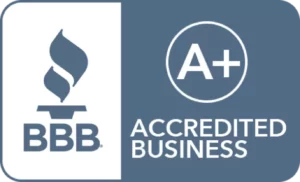What are a few things in your life that stress you? If the first words that popped into your head were “My finances”, then you’re not alone. But there are so many ways to improve your finances.
Finances: the Number One Stressor
A recent CreditWise survey, released by Capital One, revealed that finance is the number one stressor among Americans. Of those surveyed, 73% said their financial state causes them greater stress than work, politics and family turmoil. That study revealed that younger generations, such as Millennials and Generation Z, are more stressed than Baby Boomers and Gen Xers.
Out of the Gen Zers studied, 82% said that finances are the number one cause of their stress; Millennials are not far behind at 81%.
But it’s not simply what they have (or don’t have) in their bank account that stresses them; it’s also purchases, such as buying/renting a house, paying off credit card debt or student loans that trigger financial stress. On the bright side, many of the respondents believe that their financial future will turn around. Yet, many have no clue how to achieve this.
How Can I get My Finances in Order?
The survey revealed that only 16% of respondents know what actions to take to improve their credit card score, but they are willing to learn. Fortunately, there are ways to improve your finances. It just takes time and a lot of effort on your part – but if you stick with these five suggestions and maybe add a few of your own, your financial state will no longer be a stressor.
Create Realistic Goals
Your very first step is create realistic goals you know you can achieve. There are many ways to go about doing this. We’re going to share a few of the best, most fool-proof ways to create achievable goals:
- Use the SMART goal strategy. Create goals that are specific, measurable, achievable, relevant and timely.
- Create a budget. Make a list, starting with the most important finances (college debt), ending with the trivial finances (getting a manicure). Based off your income, determine how much you can put towards the bigger expenses and whether you need to let go of some trivial expenses.
- Put aside money for rainy days. Paying off debt and covering bills is important, but saving should a financial goal, as well.
Track All Expenses
If you’re creating a budget, then of course you need to track your expenses. And vice versa. Tracking your expenses is a great way to improve your finances and is much easier than you may think.
- Write down your monthly income
- Write down your monthly expenses
- Record your expenses on a daily routine
- Always check your account statements
- Use a budgeting app (many are free)
Pay Bills on Time
We all have bills – lots of them. Not only is it challenging to find the money to pay for our bills, it’s difficult to keep track of all the bills we have to pay. If you created a goal that makes your most important expenses a priority, and then created a budget, then you should have enough to pay off your bills. But how do you keep it all organized? There are ways.
- Make a list of your bills to help you keep track of these expenses.
- Find out when your bills are due – if you can pay all of your bills on the same day, this can be a huge help to ensure you pay them all off. Some creditors will allow you to change the date of your bill – call to find out.
- If you don’t have sufficient funds, some companies allow you to pay the amount you want, so again, it doesn’t hurt to call and ask.
- Set up an automated payment schedule. It will become a life saver. It’s easy to forget when a bill is due, but setting up automated payments will prevent the forgotten bills from falling through the cracks.
Make Your Debts a Priority
Your mortgage or rent, gas and electricity, student loans and credit card debts should be covered after creating your budget. If making your debts and bills a priority means you can’t eat out or go clubbing as much, that’s a sacrifice you have to make.
Debts with a high interest rate should be quickly payed off because that interest can become a huge bill all on its own.
Start Saving and Investing your Income
We briefly touched on setting aside money for a rainy day. You can save a portion of your income in a savings account at your bank, or establish an IRA and make annual contributions. With a Self-Directed IRA, you can use your contributions to make investments you understand, such as real estate.
By investing with your retirement funds, your money will grow tax-free until you take a qualified distribution. In other words, the income and gains of your investment will grow unhindered for several years. You earn more by investing with a retirement account than with personal funds. And using a self-directed retirement account allows you to purchase alternative assets, not just traditional assets like stocks.
But it’s up to you how to save and invest your money. One thing is certain: if you follow these suggested ways to improve your finances, it will no longer be the number one stress in your life. In fact, it may not be a stressor at all.











